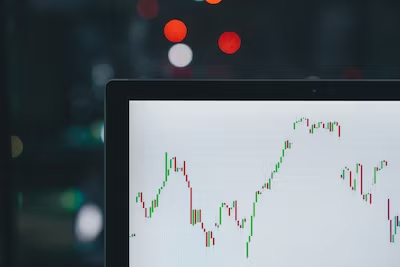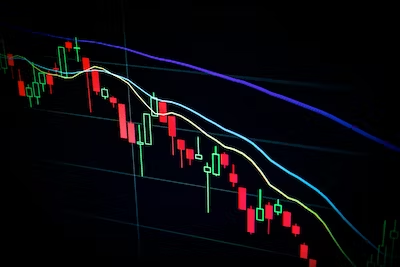Trade Wars & Market Waves: Impact on Forex
In the ever-evolving world of global economics, foreign exchange markets play a crucial role in determining the value of currencies and facilitating international trade. As businesses and individuals engage in cross-border transactions, staying informed about recent economic events becomes paramount to making informed decisions and capitalizing on market trends. In this comprehensive article, we delve into the impact of current economic events on forex markets, providing valuable insights and analysis to help you navigate the complex landscape of international currency trading.
The global trade imbalance and its ripple effects
The global trade imbalance has been a significant concern for many countries, particularly those with substantial trade deficits. The economic events surrounding trade disputes and tariffs between major economies — such as the United States and China — have profoundly impacted foreign exchange markets. Uncertainty stemming from these disputes can cause fluctuations in currency values as investors react to changing trade dynamics and market sentiments.

Central bank policies and interest rate changes
Central banks hold considerable influence over foreign exchange markets through their monetary policies, particularly in managing interest rates. Any adjustments in interest rates can significantly impact currency valuations. For instance, when a central bank raises interest rates, it attracts foreign investments seeking higher returns, leading to an appreciation in the local currency. Conversely, decreasing interest rates can result in currency depreciation as investors seek more favorable opportunities elsewhere.
Political events and geopolitical risks
Political events and geopolitical risks can create turbulence in foreign exchange markets. Elections, government changes, or significant policy shifts can cause uncertainty and volatility, leading to fluctuations in currency values. In recent years, events such as Brexit and the trade negotiations between the European Union and the United Kingdom have demonstrated the substantial impact of political factors on foreign exchange markets.
Economic indicators and market sentiment
A wide range of economic indicators provides valuable insights into the health and direction of national economies. Indicators such as gross domestic product (GDP), inflation rates, employment data, and consumer sentiment surveys are closely monitored by market participants. Positive economic indicators can bolster market confidence and lead to currency appreciation, while negative indicators can have the opposite effect. Understanding and analyzing these indicators can help traders and investors make informed decisions in the foreign exchange markets.
Technological advances and algorithmic trading
The emergence of modern technology has brought about a sea change in the functioning of the world’s financial markets, including the markets for foreign currency. In recent years, there has been a discernible rise in the popularity of algorithmic trading facilitated by high-powered computers and complex computer programs. These automated systems carry out trades according to the parameters that have been specified and the conditions of the market. Because of this, significant quantities of transactions may take place in a matter of seconds, which can affect the values of currencies and the liquidity of markets. Market players need to maintain awareness regarding the latest technological developments and their potential effects on the markets for foreign exchange.

Commodities prices and resource-based economies
Prices of commodities such as oil, gold, and agricultural items may exert a significant amount of pressure on the economy of nations that are wealthy in resources. As a result of these nations’ reliance on commodity exports as a primary source of revenue, fluctuations in commodity prices can significantly influence the value of their currencies. Price fluctuations can be caused by several factors, including shifts in the global supply and demand dynamics, geopolitical tensions, or interruptions caused by weather. To forecast changes in currency value, traders and investors need to monitor the criteria listed above carefully.
Emerging markets and growth prospects
Participants in the foreign exchange market face possibilities as well as hazards due to the presence of emerging markets. Compared to economies in industrialized nations, these economies often have higher growth rates. Their influence on the markets for currencies other than their own grows in tandem with the expansion of their economic sway. The development prospects of developing economies are heavily influenced by several fundamental factors, including political and economic stability, the pace of economic change, and demographic trends. Investors will be better able to capitalize on the potential of these markets and handle the dangers connected with them if they understand the subtleties of these markets. Traders and investors may position themselves strategically to traverse the ever-changing environment of the foreign currency markets if they remain knowledgeable, do appropriate data analysis, and keep a watchful eye on these elements.
Conclusion
Current economic developments impact currency exchange markets significantly, which in turn shapes currency values and generates possibilities and obstacles for market players. A few factors — including global trade imbalances, the actions of central banks, political events, economic indicators, technology breakthroughs, the pricing of commodities, and the dynamics of developing markets — cause intricate interactions within these markets.


